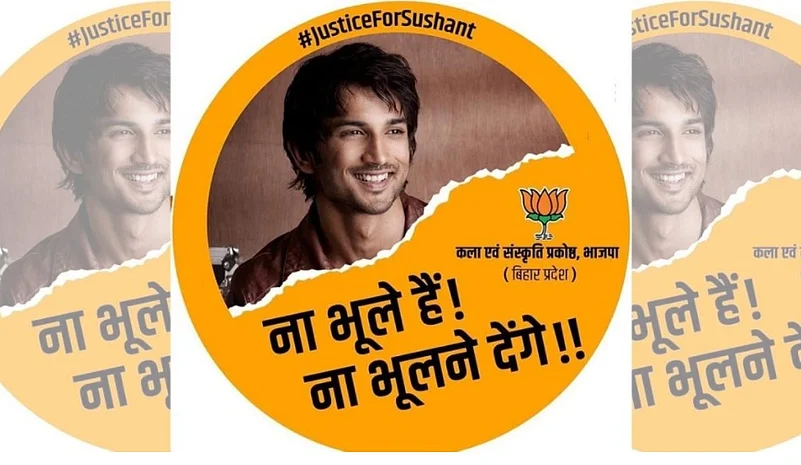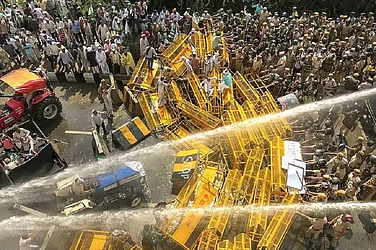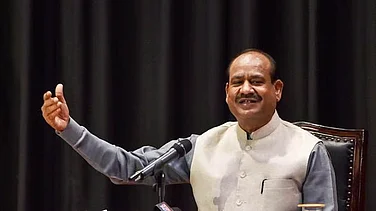Perhaps the first time in recent memory that there was such an outpouring of grief as well as violent reactions over the death of an actor was when Eva Peron succumbed to cervical cancer in 1952. Of course, she was the wildly popular and charismatic First Lady of the equally popular and mesmeric Argentinian President Juan Peron. More than two million people turned up to take a last look at Eva. This prompted the army, that later deposed Peron in a coup, to whisk away her body so that it would not become a rallying point for those opposed to the coup. Her body was finally brought back home after having travelled the world and buried nearly 20 years later.
The immediate thought that occurs is that thank God Sushant Singh Rajput’s last rites were conducted swiftly after his death.
Back in India, maybe the only place where people are so very grief stricken when a popular figure, usually an actor or a politician (or both) passes on is Tamil Nadu. Scores of fans routinely follow the departed soul by doing themselves in.
And this is just an observation: Sushant Singh was from Bihar not Tamil Nadu. While thankfully no one has abruptly decided to follow him into the hereafter, the grief and the rage that followed his death have touched epic proportions. Social media is abuzz. The shouting brigade in various television news shows have cried themselves hoarse. At least two actresses are at war (one of them is currently in jail) and the Hindi film world is sharply divided for and against one or the other actress.
The central and Maharashtra governments are at loggerheads with the former ably assisted by the Bihar administration. It’s almost as if the Chinese are not sitting on Indian territory and the pandemic has gone away following repeated pleas to do so by central minister Ramdas Athavale.
So, it all boils down to the Bihar assembly elections happening shortly. According to political pundits, in his death, Sushant Singh Rajput, God rest his soul, became tangentially involved. He just happened to be from Bihar where the ruling NDA, headed by the evergreen and ever metamorphosing Nitish Kumar, has been frantically searching for a “cause,” any cause other than Covid, unemployment, the plight of the migrants and sundry other issues like that.
In death Sushant Singh Rajput has become even more well known than in life. The BJP’s come out with posters, stickers and face masks featuring Sushant Singh Rajput and the message: "Na bhoole hain, na bhulne denge (we have neither forgotten nor will we let anyone forget)" and assuring one and all "that a promising young son of the state" would get justice.
A stray observation comes up. The BJP has put former Maharashtra Chief Minister Devendra Fadnavis in charge of its Bihar campaign. The deification of Sushant Singh Rajput has been accompanied by the vilification of the present Maharashtra government. That’s par for the course, but it doesn’t stop there. The Mumbai police, dear to the heart of many Mumbaikars, and Mumbai itself have been trashed. In fact one of the warring actresses went so far as to liken the city to Pakistan occupied Kashmir, enough to enrage any self-respecting Mumbaikar and putting the BJP and Fadnavis on the backfoot there.
Another observation on the Bihar elections: the BJP seems prepared to give its all to win the state. Five years ago there was an undeclared blockade of Nepal in defence of the Bhojpuri- and Maithili-speaking Madhesis in that country, apparent victims of considerable neglect and prejudice. All presumably done in the hopes of a sympathy wave in neighbouring Bihar for their brothers and sisters across the border. In any event it did not work then since the evergreen Nitish Babu was on the other side, aligned with Lalu Prasad and the Congress. The Modi government lost considerable goodwill in Nepal and helped greatly in the resurrection of the present Prime Minister Khadga Prasad Sharma Oli, who has thrived and grown on anti-India rhetoric ever since.
Yet another stray thought: while the NDA’s present gambit should work since Nitish Babu is on its side this time, Mumbai and Maharashtra could turn hostile to the party and the alliance. But then there’s plenty of time before Maharashtra goes to the polls and Narendra Modi has turned out to be a shrewd player of the game, in fact the best at the moment.
When he first emerged onto the national stage from Gujarat, Narendra Modi was described by some perceptive commentators as one of the new breed of politicians known as “disruptors.” These disruptors play the political game by changing the rules every now and then, especially when least expected by rivals. Others of this breed include Donald Trump, Turkish President Recep Tayyip Erdogan, Philippines President Rodrigo Duterte and Brazilian President Jair Messias Bolsonaro. Modi is in august company indeed.
Modi’s first big act of disruption was demonetisation in November 2016. He put the country through misery and turmoil and then surprised one and all by winning the UP election just three months later and by a hefty margin at that.
This time around, Modi was one of the world’s first heads of government to impose a lockdown. The total number of Covid-19 cases was under a thousand then. Six months later the country is in shambles, and at No 2 India’s coming close to topping the global Covid table with virtually no restrictions in place. Who knows what went wrong or whether it went wrong at all? After all it could have been worse. Maybe it will get better swiftly?
Shrewd observers of the political scene have come up with a theory, something they’re never short of. By retrofitting theory to action, they’ve concluded that while Modi makes big bang announcements that capture public imagination as someone who means well, the actual implementation is left to the Babus who large numbers believe are either inept or corrupt or both.
But the show must go on.
( Views expressed are personal)























